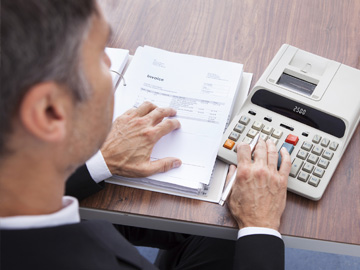5 Tips on Calculating Business Expenses
If you own a small business, you know that the Canada Revenue Agency (or the equivalent government organization in your country) requires you to not only record your income and expenses but also puts you in charge of the nitty-gritty of reporting all of that information correctly to them. This means not only do you have to educate yourself with the dos and don’ts but also ensure that you’re doing the calculations correctly. Reporting incorrect income and expenses, even if it’s unintentional, can result in hefty fines.
Figuring out how much money your business makes can be simple but calculating business-related expenses not so much! We want to help you with that so we have come up with five tips to record and report business expenses properly so that you can receive the highest tax return possible.
1. Estimate your income and plan a budget.
Whether it’s investing in the right hardware and software for your business or setting up an expense tool like Concur, planning ahead of time can make all the difference. When you’re well prepared to handle your tax-related responsibilities like saving invoices and tracking expenses, tax season can be a time to look forward to, not one to tread.
2. Report your cellphone and internet services.
Both these services require a device to operate so you’d have to calculate them separately from their hardware. Divide the usage of both services between personal and professional. Let’s say you use your cellphone and internet service forty percent for personal use, you can claim 60% of the costs against your business income. Calculating the hardware is a different story altogether. Your cellphone and computer would fall under Capital Cost Allowance where you claim a certain amount of depreciation on these devices per year. This applies to all services you’ve signed up for such as banking, bookkeeping service like quickbooks, and industry-specific services such as Smartsheet or Hootsuite, etc.
3. Report your office expenses.
This can be done in two different ways depending on your office is. If you’re running your small business from your home, you can claim part of your rent and utilities. If you’ve rented or purchased your office space, you can claim the entire amount against your business income. In addition to the space itself, you can report the furniture and tools you buy for your office.
4. Report your advertising costs.
This expense is not limited to traditional advertising costs like airing an ad on TV or displaying an on a section of the newspaper. Today, the marketing landscape is ever-changing so much so that the cost of running a social media account like a Facebook business page can be considered advertising (lots of businesses even invest in Snapchat).
5. Track your business meals.
Are you going out with a business associate to discuss an upcoming project? Are you buying your clients a meal? If you keep a copy of these meals’ receipts, you can potentially report their cost as an expense against your early income. This category of expense can be frequent so it’s best to keep your invoices organized and numbers punched in periodically.
Bonus Tip:
You can view the full list of business expenses listed by Canada Revenue Agency through the link below:
http://bit.ly/1AP8cH8

